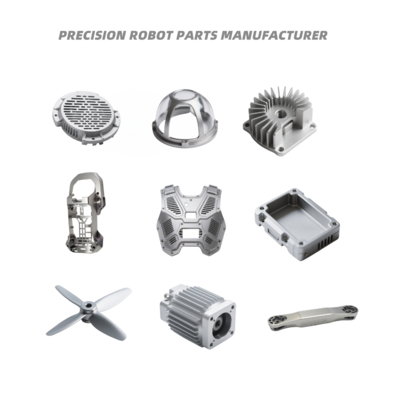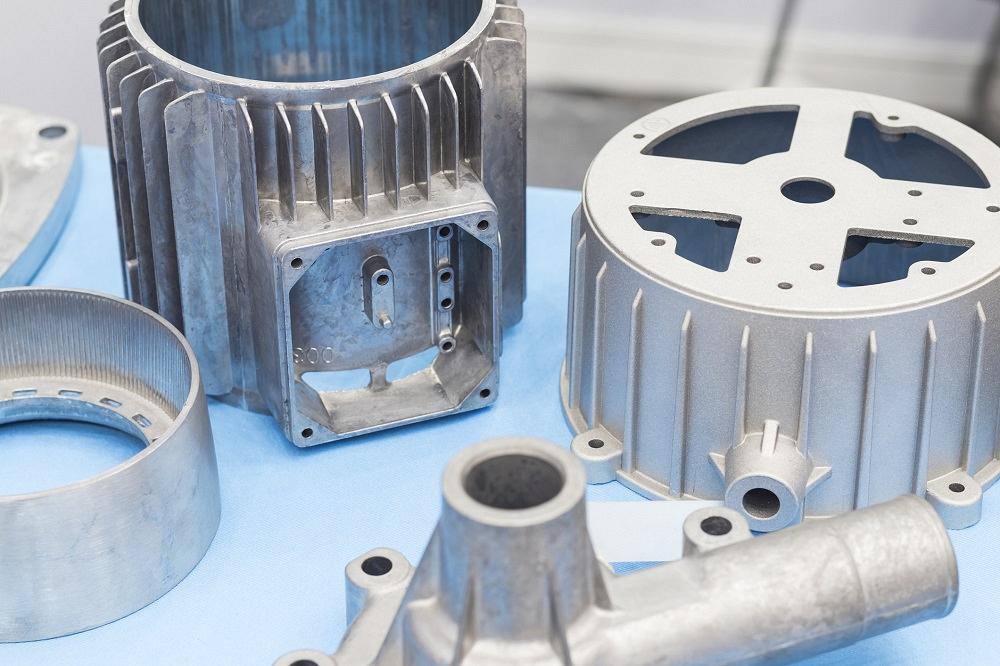Exploring the Duty of Foundry Solutions beforehand Modern Design Solutions
Shop services are necessary fit contemporary engineering remedies - Aluminum Foundry. They link the gap between typical production strategies and the demands of contemporary industries. With innovations in automation and sustainability, shops are evolving to fulfill the needs of industries such as aerospace and auto. This change increases inquiries regarding the ramifications for products, procedures, and future developments. What challenges and chances lie ahead for shop solutions in this quickly changing landscape?
The Development of Factory Services in Engineering

The assimilation of computer-aided design (CAD) and simulation software application has actually transformed the style and manufacturing processes, enabling foundries to create complicated geometries with greater precision. Additionally, the change in the direction of environmentally friendly practices has caused the adoption of greener innovations and recycling efforts within factories. As sectors significantly focus on modification and rapid prototyping, factory services have actually increased their capacities, guaranteeing they continue to be important contributors to the engineering landscape. This advancement underscores the factory's important function in supporting innovations across numerous markets, including automobile, aerospace, and power.
Key Processes and Techniques in Modern Foundries
Modern foundries utilize a variety of essential procedures and methods that improve the effectiveness and high quality of steel spreading. Among these, sand casting continues to be widespread as a result of its convenience and cost-effectiveness. The usage of advanced innovations, such as computer-aided design (CAD) and computer-aided production (WEBCAM), allows for specific modeling and manufacturing, making sure high precision in element dimensions. Furthermore, financial investment casting is favored for generating intricate geometries with superb surface area coatings.
Automation and robotics enhance manufacturing speed and consistency while decreasing labor prices. Methods like additive production are progressively integrated to create intricate molds and cores, therefore minimizing material waste. The application of thermal analysis help in optimizing casting procedures by managing and anticipating solidification actions. Collectively, these processes and strategies exhibit exactly how modern factories are adjusting to meet the needs of modern engineering difficulties, guaranteeing superior product top quality and operational effectiveness.
The Relevance of Products Option in Foundry Providers
Selecting the suitable materials is crucial in shop solutions, as it directly influences the mechanical buildings, durability, and general efficiency of the last item. Different products have unique characteristics, such as tensile stamina, corrosion resistance, and thermal security, which must align with the intended application of the actors components. As an example, steels like light weight aluminum and steel are usually selected for their strength-to-weight ratio, while alloys can enhance details efficiency traits.
In addition, the selection process involves considering variables such as accessibility, expense, and manufacturability, which can especially affect project timelines and budgets. Additionally, advancements in product scientific research allow the development of cutting-edge composites and specialized alloys that deal with arising engineering challenges. Subsequently, an extensive understanding of material residential or commercial properties and their effects is vital for engineers and foundry specialists to attain effective results in their tasks. This careful selection process inevitably enhances the dependability and performance of the end products.
Shop Services in Aerospace and Automotive Applications
Foundry services play an important duty in the aerospace and automotive markets, where accuracy and performance are critical. These sectors depend greatly on the manufacturing of complicated elements that have to satisfy strenuous top quality criteria and endure severe problems. Shops give vital services such as casting, machining, and finishing, making sure components are lightweight yet robust, important for improving gas efficiency and security.
In aerospace, shop solutions add link to the manufacturing of turbine blades, engine components, and structural components, every one of which need detailed designs and high-performance products. In the automotive market, shops provide engine blocks, chassis components, and transmission instances, focusing on toughness and weight decrease.
Advanced foundry techniques, including additive production and accuracy casting, are progressively used to satisfy the particular needs of these sectors. By using customized services, foundry solutions help drive advancement and keep competitive benefits in the fast-evolving aerospace and automobile landscapes.
Innovations Driven by Shop Capabilities
Countless technologies in engineering are fueled by the innovative capabilities of shop services. These solutions allow the manufacturing of complicated geometries and high-performance materials that are crucial for modern applications. Additive manufacturing, generally known as 3D printing, has seen significant improvements via shop techniques, allowing for the quick prototyping of complex layouts. In addition, the ability to cast lightweight alloys has actually reinvented sectors such as aerospace and auto, causing boosted gas efficiency and performance.
Shops are increasingly incorporating clever modern technologies, such as automation and data analytics, to improve production effectiveness and top quality control. These technologies not only decrease waste however likewise make it possible for customization at range, fulfilling the certain requirements of customers. By leveraging advanced shop capabilities, designers can explore new frontiers in product design and functionality, ultimately driving development throughout various sectors and developing a foundation for future innovations.
Future Fads in Shop Solutions and Engineering Solutions
The future of shop solutions is shaped by arising patterns such as lasting manufacturing methods, which prioritize environmental obligation. Automation and wise innovations are established to boost effectiveness and accuracy, while raising modification and versatility will meet the advancing needs of customers. As these fads progress, they will certainly redefine the landscape of engineering options in the factory market.
Sustainable Manufacturing Practices
As sectors progressively prioritize ecological responsibility, lasting production techniques within factory solutions are ending up being necessary to modern-day design solutions. These methods focus on decreasing waste, minimizing energy intake, and using eco-friendly materials throughout the production process. By applying methods such as recycling scrap steel and optimizing melting procedures, factories can especially lower their carbon impact. In addition, the fostering of life cycle evaluations permits manufacturers to assess the environmental influence of their products from beginning to disposal. Collaborating with vendors devoted to sustainability even more improves the blog performance of these initiatives. Ultimately, welcoming lasting production not just aligns with global environmental goals but also promotes technology and competitiveness in the quickly evolving design landscape.
Automation and Smart Technologies
While numerous industries are accepting technical developments, shop solutions are experiencing a substantial improvement via automation and clever modern technologies. The integration of robotics and automated systems improves manufacturing performance, lowers human mistake, and accelerates the manufacturing procedure. Smart innovations, such as IoT and AI, make it possible for real-time surveillance and predictive maintenance, which optimize operational performance and reduce downtime. These developments promote data-driven decision-making, permitting shops to react swiftly to market needs and boost product high quality. Additionally, automation reduces labor costs and boosts office safety and security by managing unsafe jobs. As shop solutions proceed to embrace these developments, they are poised to redefine design remedies, bring about raised competitiveness and sustainability in the manufacturing market.
Modification and Adaptability Trends
Arising trends in shop solutions progressively emphasize modification and versatility to satisfy unique consumer requirements. This change reflects a more comprehensive demand for tailored engineering options that adjust to certain project needs and industry criteria. Firms are purchasing innovative modern technologies, such as additive production and electronic modeling, enabling them to produce tailored components effectively and cost-effectively. Because of this, factories are moving far from one-size-fits-all methods, providing customers the capability to customize layouts and materials in real-time. Additionally, collaboration between design groups and foundry services is becoming much more integrated, promoting technology and increasing time-to-market. This pattern not just boosts product efficiency but likewise sustains sustainability by decreasing waste through exact production processes.
Often Asked Concerns
What Are the Regular Expenses Related To Shop Services?
Normal prices related to foundry services consist of product expenses, labor charges, devices usage costs, and overhead prices - Aluminum Foundry. These costs can vary extensively based upon job complexity, volume, and details needs of the engineering solution involved
How much time Does the Factory Refine Usually Take?
The foundry process normally takes anywhere from a number of weeks to a couple of months, depending on elements such as complexity, material needs, and manufacturing volume, which can substantially influence timelines and total job distribution.
What Industries Benefit Many From Shop Solutions?
Industries such as vehicle, aerospace, and building and construction benefit substantially from shop services. These industries rely upon precision casting and metal construction to develop complex components, improving product efficiency and functional efficiency in their Read More Here respective applications.
What Accreditations Should Foundries Have?
Factories ought to possess certifications such as ISO 9001 for quality monitoring, ISO 14001 for environmental management, and particular market qualifications like AS9100 for aerospace or IATF 16949 for automobile, ensuring conformity and quality control.
Exactly How Do Foundries Guarantee Quality Control in Their Procedures?

Foundry services are essential in forming modern engineering services. As design techniques have actually advanced, the function of shop solutions has changed significantly to satisfy evolving industry demands. As markets significantly focus on modification and fast prototyping, factory services have expanded their capabilities, ensuring they stay essential contributors to the engineering landscape. As industries increasingly focus on ecological duty, lasting production techniques within factory solutions are becoming essential to modern-day design remedies. Furthermore, partnership between design groups and factory services is becoming a lot more integrated, cultivating development and speeding up time-to-market.